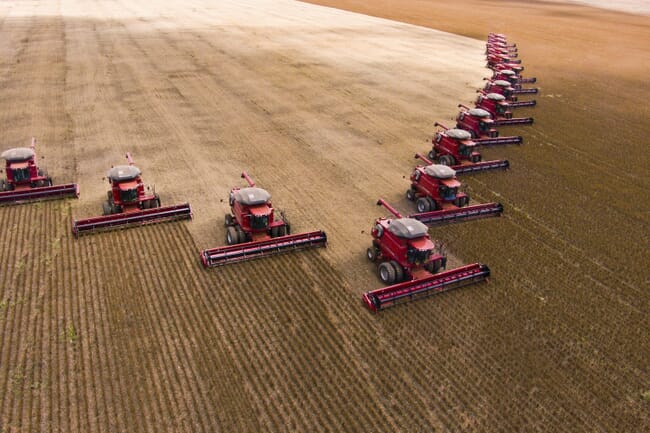
These were two of the key messages delivered at the latest IFFO conference, which took place in Lisbon this week.
The conference session on the supply of feed ingredients started with an update on the anchovy fishing quota for Peru’s North-Centre region, as the Peruvian authorities had just announced that the quota for the region's second anchovy season, which starts on 1 November, is set at 2.510 million tonnes.
Rabobank’s head of agri commodities market research, Carlos Mera, explained that soybean farms in the US, Brazil and Argentina have had good seasons, leading to a substantial soybean meal surplus. Chinese importing of soybean drives the market, and following the challenges relating to swine fever, population growth and changes to farmers, China’s demand for soybean has slowed greatly – a trend which is likely to continue, according to Mera.
Meanwhile, he highlighted that there is a global deficit of wheat, due to a disappointing crop in the EU, UK, Russia and Ukraine. Wheat stocks in the US are doing well, but drought in the Panama Canal has increased export costs, he pointed out.
In terms of vegetable oils, he noted that there is on-going growth apart from palm oil, where deforestation regulations slow the market. Soybean oil and palm oil are traded at the same level, with palm oil going up and soybean oil going down due to less demand and the US election, but prices will likely go up. Rapeseed oil prices have also increased but again they will likely go down. Deforestation regulations have caused anxiety in the industry due to the lack of clarity and clear guidelines in advance. Incoming EU regulations will ban any commodities grown on land converted after 2020, and there are multiple layers of detailed checks with the possibility of false positives.
As for algal oil, Gertjan de Koning, CEO of Veramaris, noted that although they cannot beat the carbon footprint of fish oil from a well-managed fishery, they have reduced it by 27 percent in two years.



